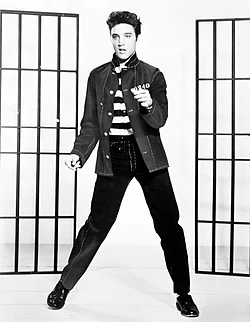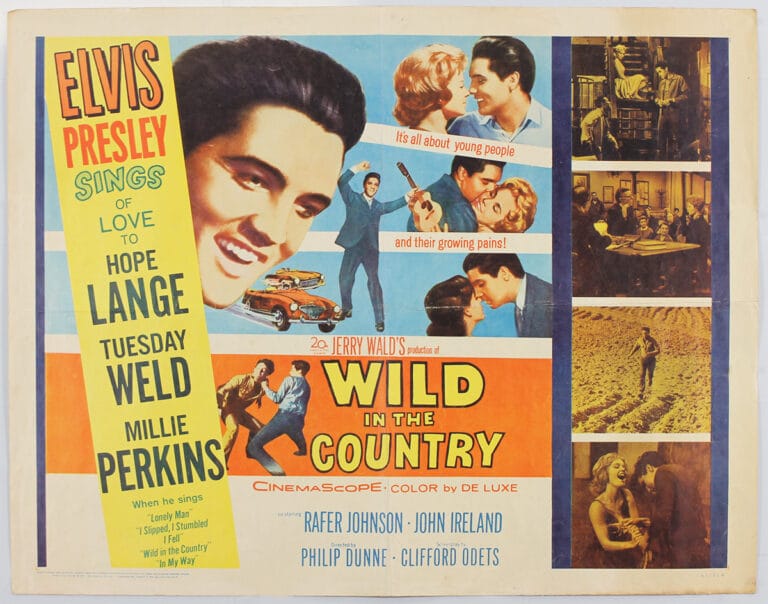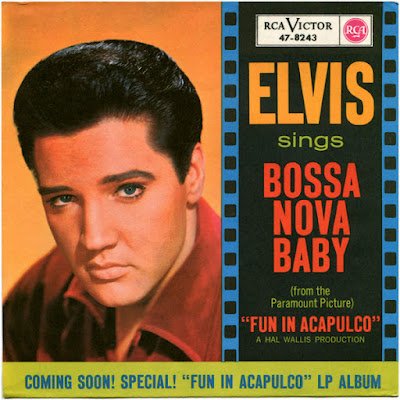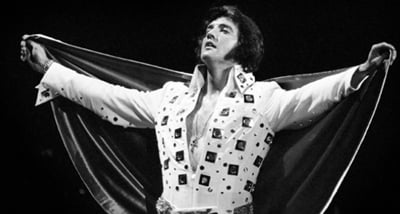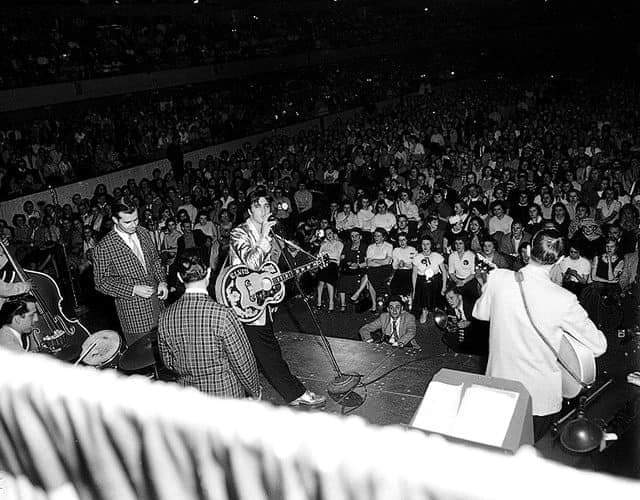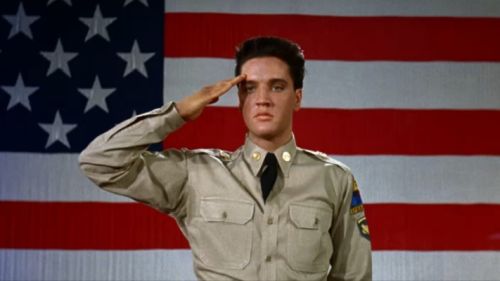
GI BLUES (Part 1)
By Mariusz Ogieglo
” I will never stop singing, but more than anything I would like to be an actor ,” said Elvis, whose dream of becoming a big Hollywood star was so strong that even the most scathing review could not stop him from pursuing it.
Even more so because his appearance in the film, “King Creole”, turned out to be a huge success and received a lot of praise from critics and journalists writing for the most widely read newspapers and magazines across the country.
Paradoxically, however, just a few days after the shooting, Presley was conscripted into the American Army and his further, increasingly promising acting career (and not only the rest) became a big question mark.
Two years of absence from the dynamically developing music scene, where new stars such as Fabian, Neil Sedaka, Bobbie Darin, Rick Nelson or Connie Francis appeared almost every day, could have not only irreversibly driven Elvis out of the market but also, worse still, make it just a memory of the passing decade.
ELVIS PRESLEY RADIO
The period of military service turned out to be a kind of test both for his manager, Colonel Parker, who throughout this time did everything in his power to maintain public interest in Presley, as well as for the publishers from RCA, who made sure that records with his hits They went on sale regularly. Which, considering the fact that Elvis was hardly recording at all at that time (apart from a short session in June 1958) and the record company’s archives did not have many new, unpublished songs, was not such an easy task.
When releasing new products on the market, RCA was forced to largely use already well-known material, often dating back to the period of Elvis’s cooperation with the SUN label or from the soundtracks of his earlier films (most often those that had previously only been released in the form of the so-called four, i.e. “Love Me Tender” and “Jailhouse Rock”).
Despite this, albums such as “For LP Fans Only” or “A Date With Elvis” have always found a large audience and were popular among fans.
Like all singles from this period. Songs such as “One Night”, “(Now And Then) There’s A Fool Such As I” and “A Big Hunk O’ Love” sold millions of copies and topped the world’s bestseller lists for weeks.
Parker’s strategy works and Presley, although absent, was still the hottest and most desired name in the American music industry, whose return was eagerly awaited by multitudes of admirers.
Hollywood was also preparing for Elvis’ return, because, as popular magazines, including the weekly Variety, argued in their texts, ” when Elvis Presley returns to making films after his military service ends in March next year, he will be more popular than ever before “ * .
GI BLUES – ELVIS PRESLEY
Perhaps this was also one of the reasons why, in October 1958, Parker renegotiated the terms of Presley’s contract with Paramount Pictures (originally concluded in 1956) and agreed, among other things, that the singer would be rewarded for participating in his first film after retiring from civilian life. will receive a fee of as much as one hundred and seventy-five thousand dollars!
In turn, a few months later, in the summer of 1959, producer Hal B. Wallis flew to Germany, where Elvis and his unit had been transferred in October 1958, to, as it was written, ” get acquainted with the original setting of Presley’s place of service ” and personally discuss details of his next film with him. Completely different from the previous ones.
” Entering the army changed Elvis significantly ,” Wallis said in his book “The Private Life of Elvis.” “ He gained experiences there that were both good and bad for him. There was terrible despair after the loss of his mother, there was a hard school of his character when he had to learn to live like Private Elvis Presley. But when I came to visit him in Germany and when he started filming the movie ‘GI Blues’ about his daily duties in the army, Elvis was as good as new! He went through it with a flushed face. He was recruited as a boy and went into civilian life as a man .
The script, which Wallis brought with him to Bad Nauheim in mid-August 1959 and then presented to Elvis in the house he rented at Goethestrasse 14, told a funny story of three American soldiers – Tulsa McClean (the character Elvis eventually played), Cookie and Rick , who form the band The Three Blazes and dream of opening their own nightclub in the future.
However, they don’t have the money to do it.
The chance to obtain the appropriate amount appears only when their unit is delegated to Frankfurt (hence the media quickly began to see analogies to Presley’s real military service) and Tulsa, on the day of his departure to Europe, accepts an unusual challenge and bets with his friend for three hundred dollars that he will be able to spend the night with the beautiful but very inaccessible Lila – a dancer from the German club Cafe Europa.
However, everything begins to get complicated when, upon arrival, it turns out that the star is not at all like the other soldiers described it, and real feelings begin to develop between the main characters…
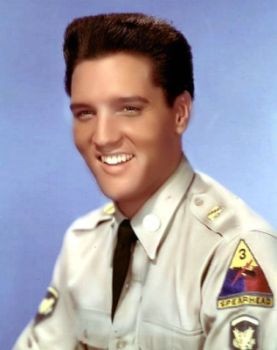
According to the initial assumptions of a popular Hollywood producer, the film was to be a ” comedy drama ” in which Elvis would perform ” eight to nine songs, not all of which would be rock’n’roll “
- Fragment of an article from September 2, 1959
Info: EP Promised Land (Poland), Mariusz Ogieglo. http://www.elvispromisedland.pl/
If you want to visit more articles about the life of Elvis Presley, enter the following Elvis Radio 24h link: https://elvisradio24h.com/tag/articles Thanks TCB
We remind you that you can also listen to Elvis Radio 24 hours on your mobile phone by downloading our free applications for Android in the Play Store https://play.google.com/store/apps/details?id=com.icreo.elvisradio24h1, and for iPhone in your Apple Store https://apps.apple.com/app/elvis-radio-24h/id6444257119. Thank you very much!!…
